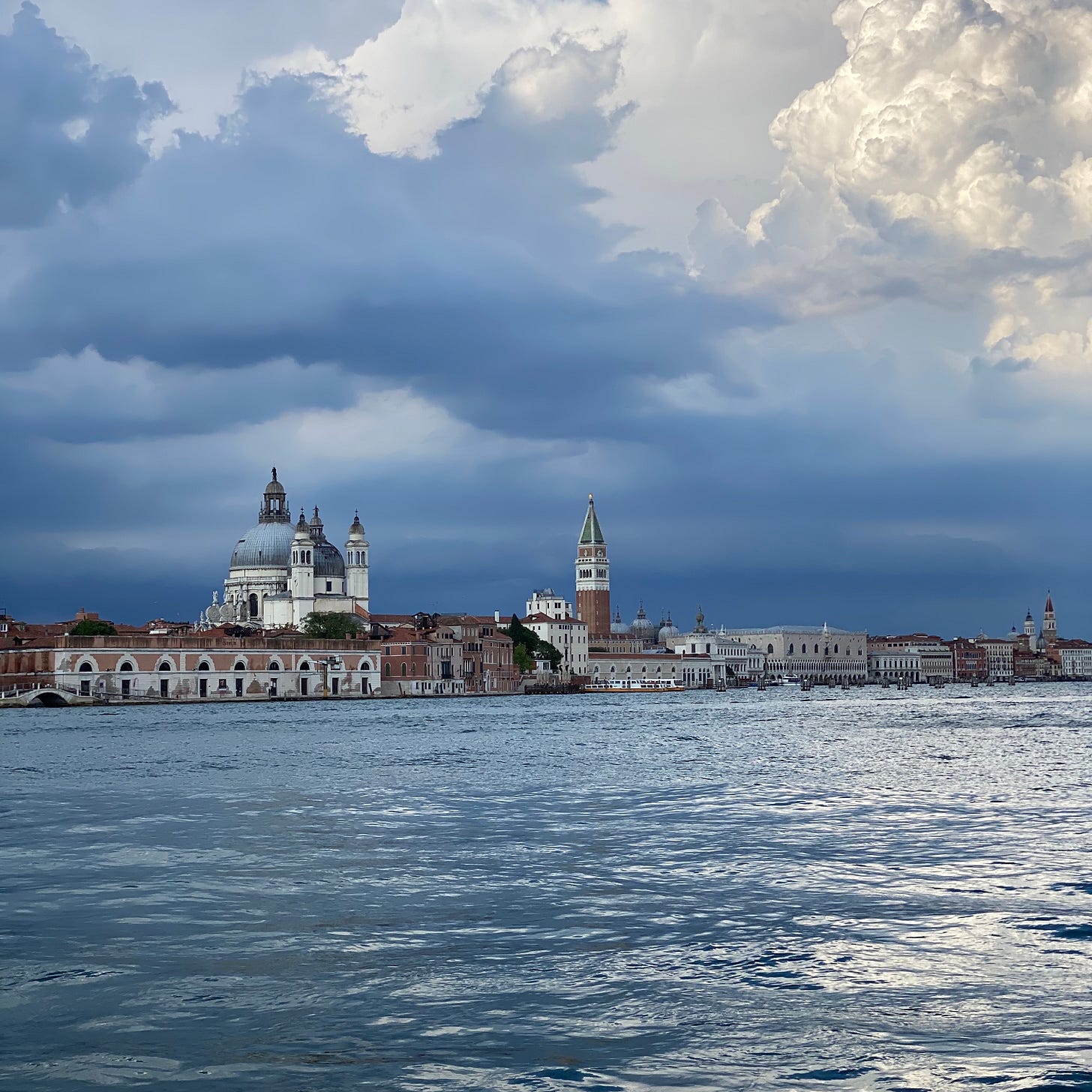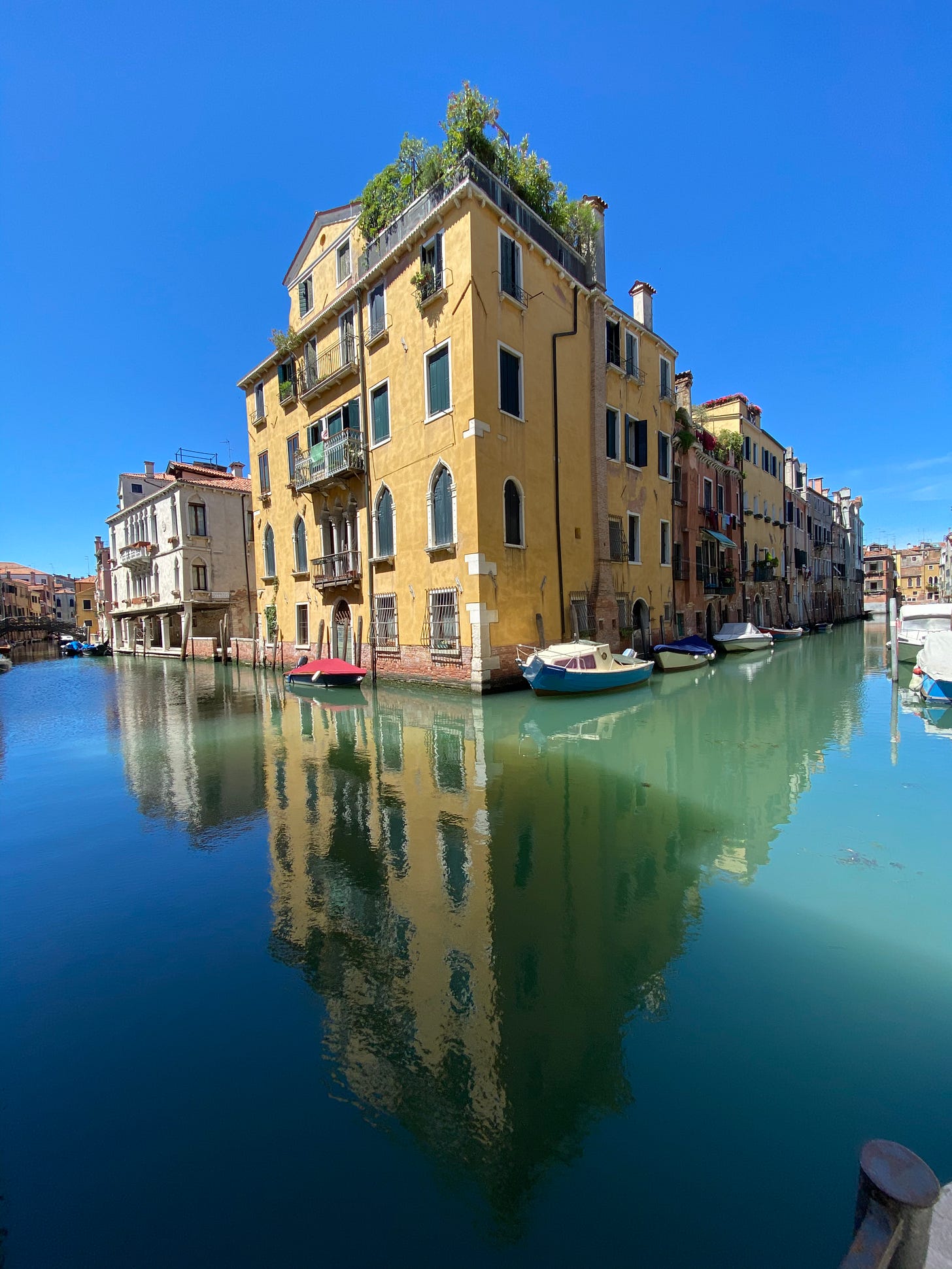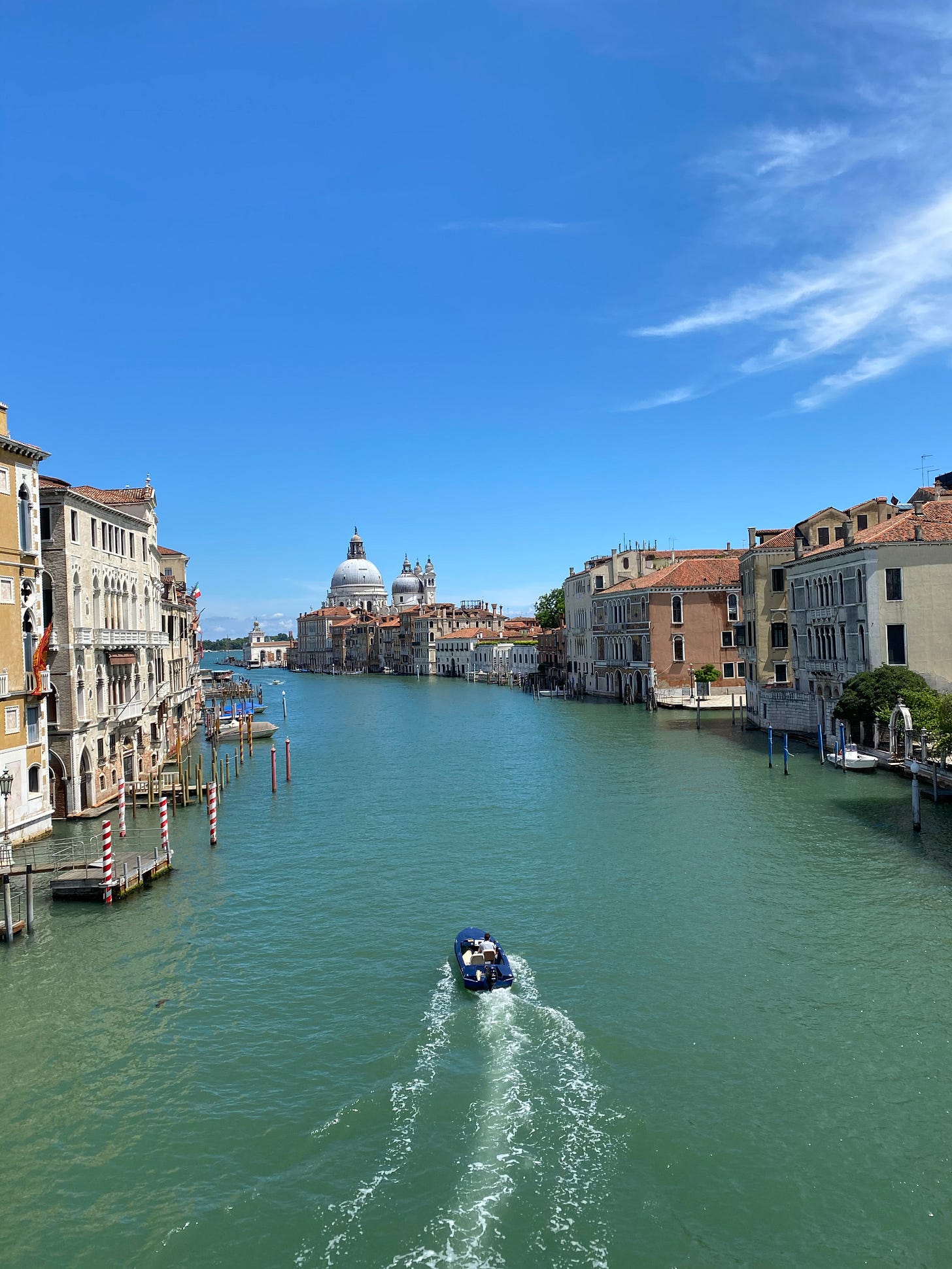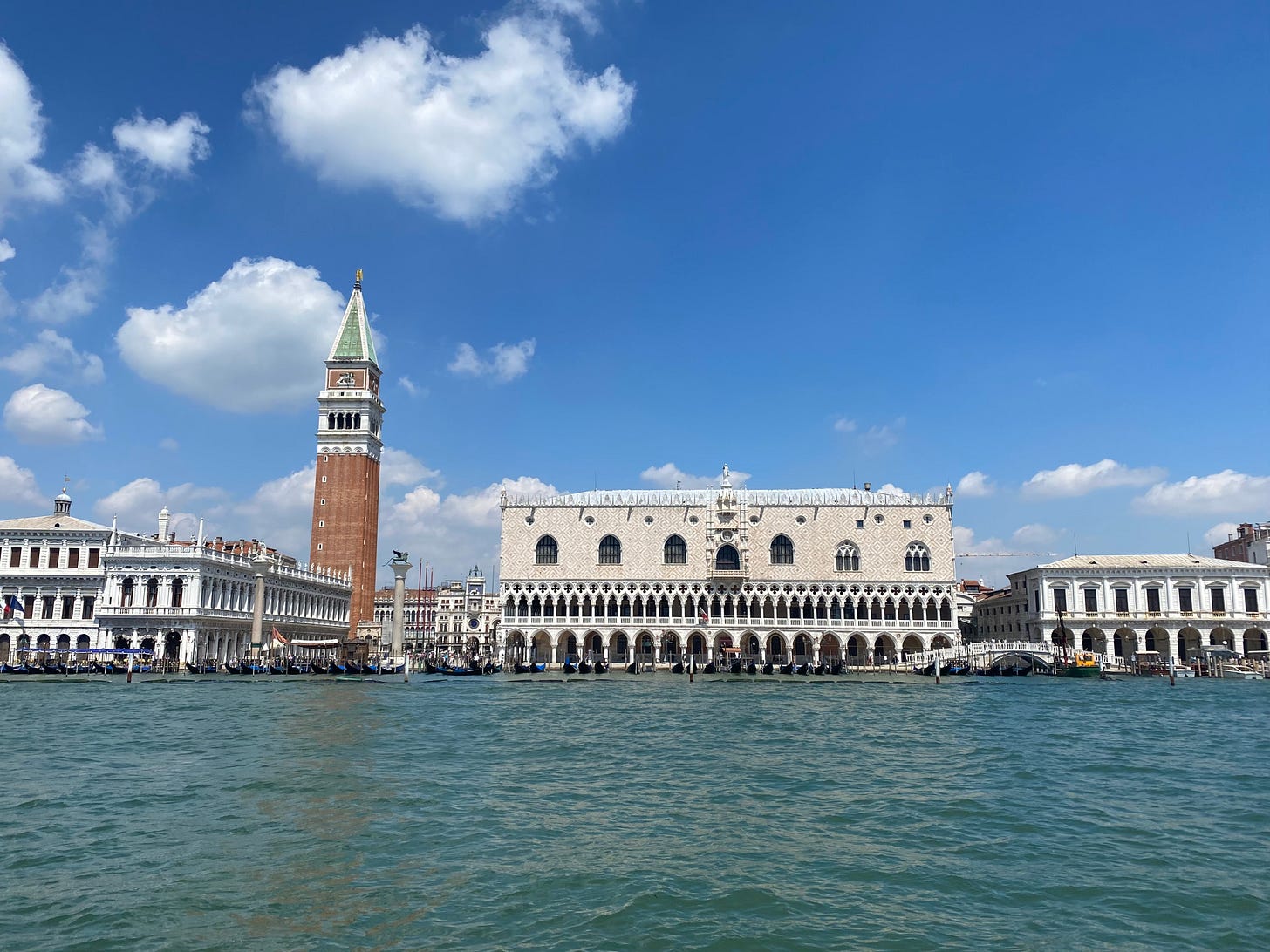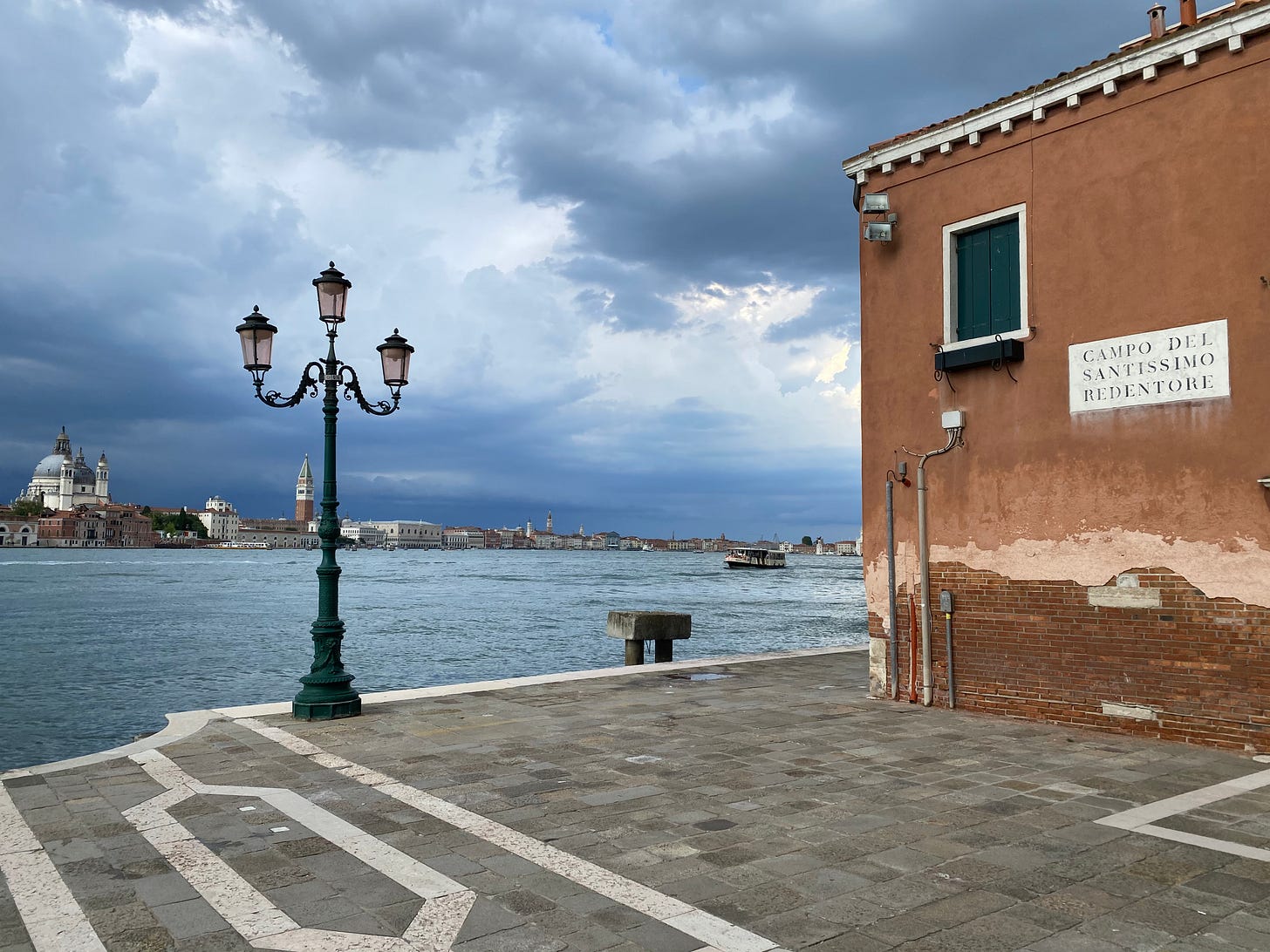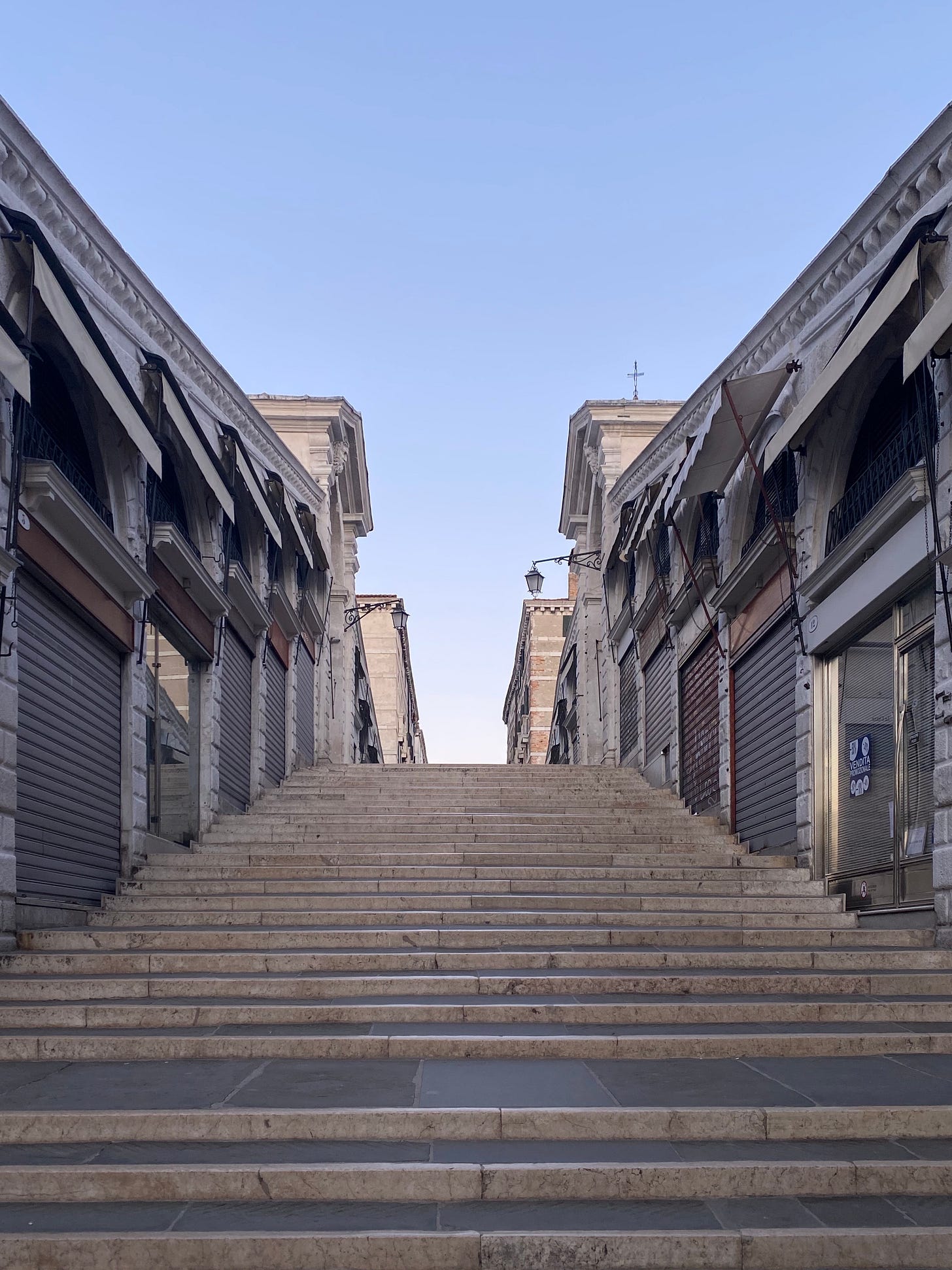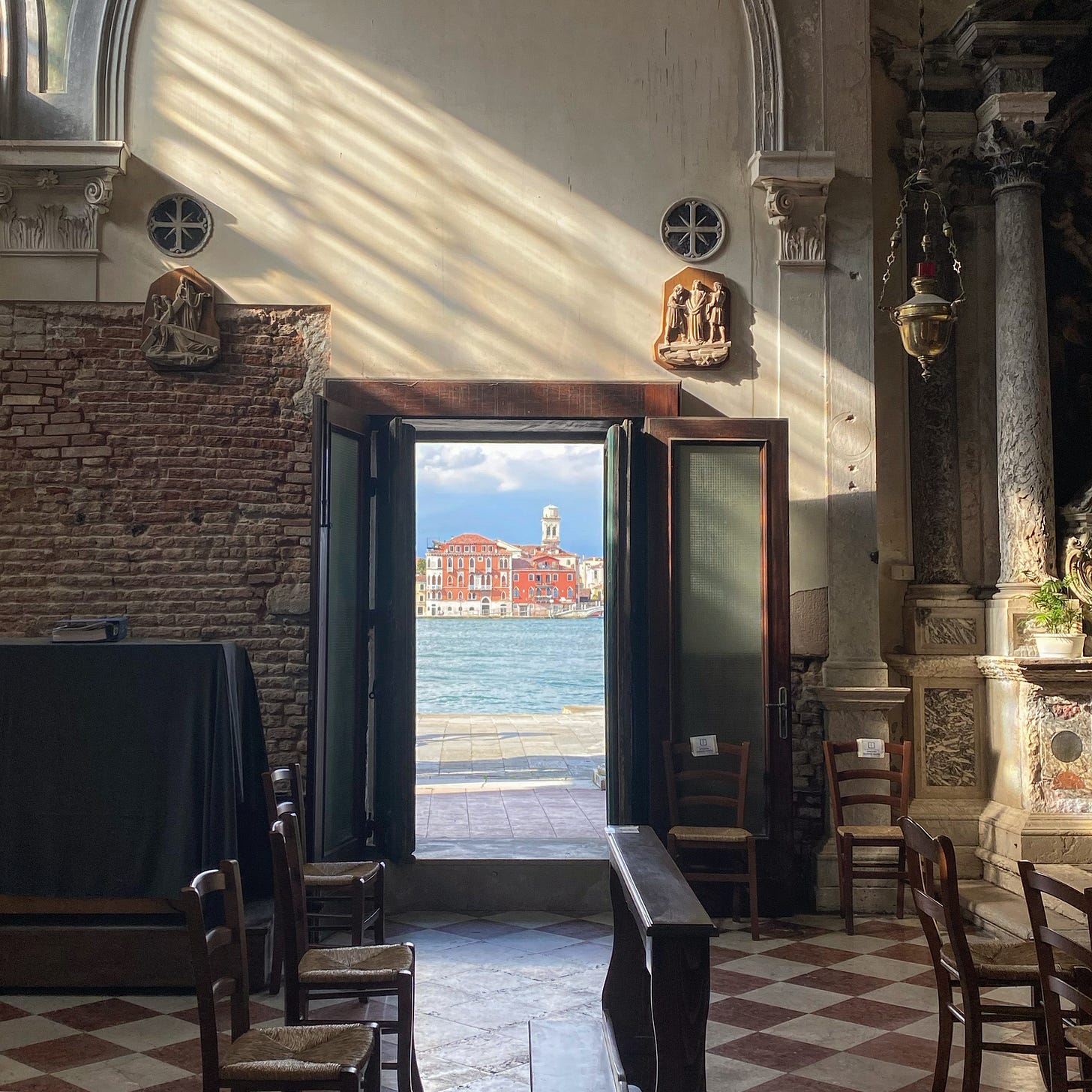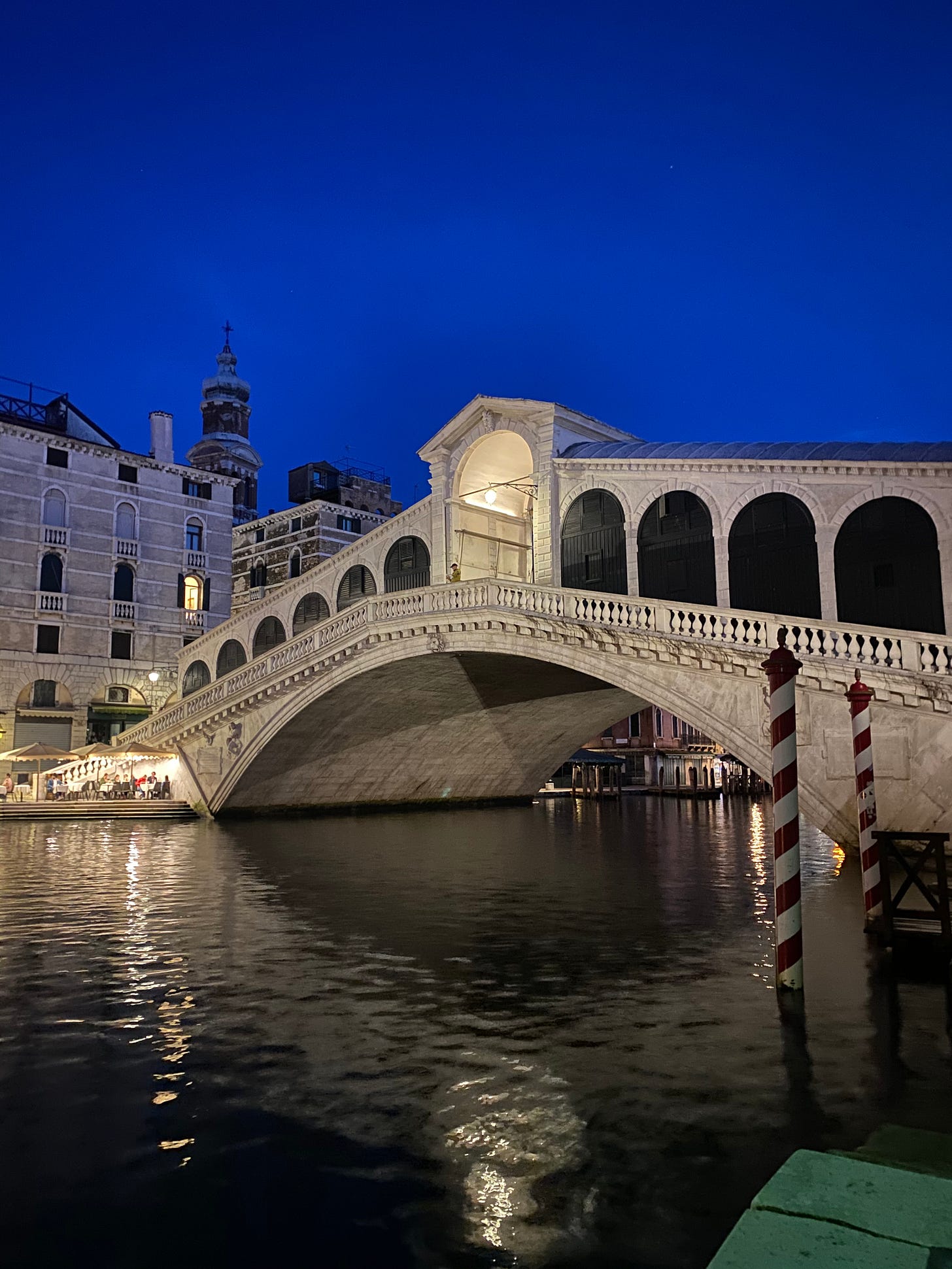All photographs taken by me in Venice in June 2020
In early June of twenty-twenty, almost exactly three years ago, and for the first time since that March, movement between Italian regions reopened. I had the great fortune to have a generous friend with an empty apartment (and super fast broadband) in Venice, and on 9 June 2020 Massimo and I went on the Frecciarossa to La Serenissima and had it almost entirely to ourselves. The five or so weeks, off and on, I subsequently spent exploring, and preparing and giving my online talks, between that summer and the following spring was one of the most notable silver linings of a very cloudy period.
As I walked and walked, often in elaborate and unintentional loops, I repeatedly stumbled across the echoes of my very first visit on a week-long school trip. It was 1993, I was in the Lower Sixth, and the previous year the Maastricht Treaty had established “every person holding the nationality of a Member State shall be a citizen of the [European] Union”. I had no idea then how important both the trip and the treaty would be to me.
The Venice trip was really for girls studying Art History and I was then doing A-levels in Maths, Further Maths, Physics, and Chemistry but I asked if I could go anyway. It turned out to be one of the revolutionary experiences of my adolescence.
Sixteen and shy, I remember successfully ordering a piccola Coca Cola at a bar near the station and feeling the world full of infinite possibility; the Scuola di San Rocco, Titian’s Madonna of the Frari, and the astonishing sight of the mosaics on a day in Ravenna; sitting on church steps on a balmy October evening, sufficiently out of context that the rigid friend groups of my brittle girls’ school coalesced offering a glimpse of adulthood.
At the end of the week the coach from the airport deposited us back at school and I nervously waited to say thank you to the soignée History of Art mistress who had organised it all with such aplomb. My mother imbued in me the importance of thanking teachers after trips which ate into their school holidays and required much organising (I now, of course, know exactly how much), but I had never meant it so much. Earnest and awkward I proffered my thanks, little knowing how important that week in Venice had been.
In 1981 Francesco Guccini, a Modenese singer-songwriter now in his early eighties, released an album called Metropolis which among songs dedicated to Byzantium, Milan, and Bologna includes a melancholic ode to Venice. I find it has echoes of the pamphlets printed of Marinetti’s Futurist Manifesto and hurled from the campanile of San Marco in 1909.
We repudiate the ancient Venice extenuated by morbid secular voluptuousness, though we have loved it long and possessed it in the anguish of a great delightful dream. […] Burn the gondolas, those rocking chairs for fools and erect up to the sky the rigid geometry of large metallic bridges and factories with waving hair of smoke, abolish everywhere the languishing curves of old architecture! May the dazzling reign of divine Electrical Light at last free Venice from the venal moonlight of her furnished room”
Manifesto of Futurism, Filippo Tommaso Marinetti, 1909.
The eccentric translation of the pamphlet is theirs, that of Guccini’s song below is mine.
Venezia che muore, Venezia appoggiata sul mare
La dolce ossessione degli ultimi suoi giorni tristi
Venezia, la vende ai turisti
Che cercano in mezzo alla gente, l'Europa o l'oriente
Che guardano alzarsi alla sera, il fumo o la rabbia di Porto Marghera
Venice is dying, Venice resting on the sea
Venice sells the sweet obsession
of her last sad days to tourists
Who look for Europe and the East in the midst of the crowds
Who see the smoke and the rage of the port of Marghera rise in the evening
Stefania era bella, Stefania non stava mai male
Ma è morta di parto gridando, in un letto sudato, d'un grande ospedale
Aveva vent'anni, un marito e l'anello nel dito
Mi han detto confusi i parenti che quasi il respiro
Inciampava nei denti
Stefania was beautiful, Stefania was never ill
But she died screaming in childbirth, in the sweat-soaked bed of a big hospital
She was twenty, with a husband and a ring on her finger
Relatives told me that it was as if her breath couldn’t get through her teeth.
Venezia è un albergo, San Marco è senz'altro anche il nome di una pizzeria
La gondola costa, la gondola è solo un bel giro di giostra
Stefania d'estate, giocava con me nelle vuote domeniche d'ozio
Mia madre parlava, sua madre vendeva Venezia in negozio
Venezia è anche un sogno, di quelli che puoi comperare
Però non ti puoi risvegliare con l'acqua alla gola
E un dolore a livello del mare
Venice is a hotel, San Marco is undoubtedly also the name of a pizzeria
The gondola is expensive, the gondola is just a lovely fairground ride
In the summer Stefania played with me in empty idle Sundays
My mother talked, her mother sold Venice in the shop
Venice is also a dream, one of those you can buy
But you can’t wake up with water up to your neck
And a pain at sea level.
Il Doge ha cambiato di casa e per mille finestre
C'è solo il vagito di un bimbo che è nato, c'è solo la sirena di Mestre
Stefania affondando, Stefania ha lasciato qualcosa
Novella 2000 e una rosa sul suo comodino
Stefania ha lasciato un bambino
Non so se ai parenti gli ha fatto davvero del male
Vederla morire ammazzata, morire da sola, in un grande ospedale
The Doge has moved house and among the thousand windows
There’s just the cry of a newborn baby, there’s just the siren of Mestre
While she went under Stefania left something behind
Novella 2000 [a women’s magazine] and a rose on her bedside table
Stefania left a baby behind
I don’t know how much it really hurt her family
To see her killed, dying alone, in a big hospital
Venezia è un imbroglio, che riempie la testa soltanto di fatalità
Del resto del mondo non sai più una sega
Venezia è la gente che se ne frega
Stefania è un bambino
Comprare o smerciare Venezia sarà il suo destino
Può darsi che un giorno saremo contenti
Di esserne solo lontani parenti
Venice is a scam, which fills your head with cruel destiny
You don’t know a damn thing about the rest of the world
Venice is people who don’t care
Stefania is a baby boy
Buying and selling Venice will be his destiny
Perhaps one day we’ll be happy
Just to be distant relatives.




